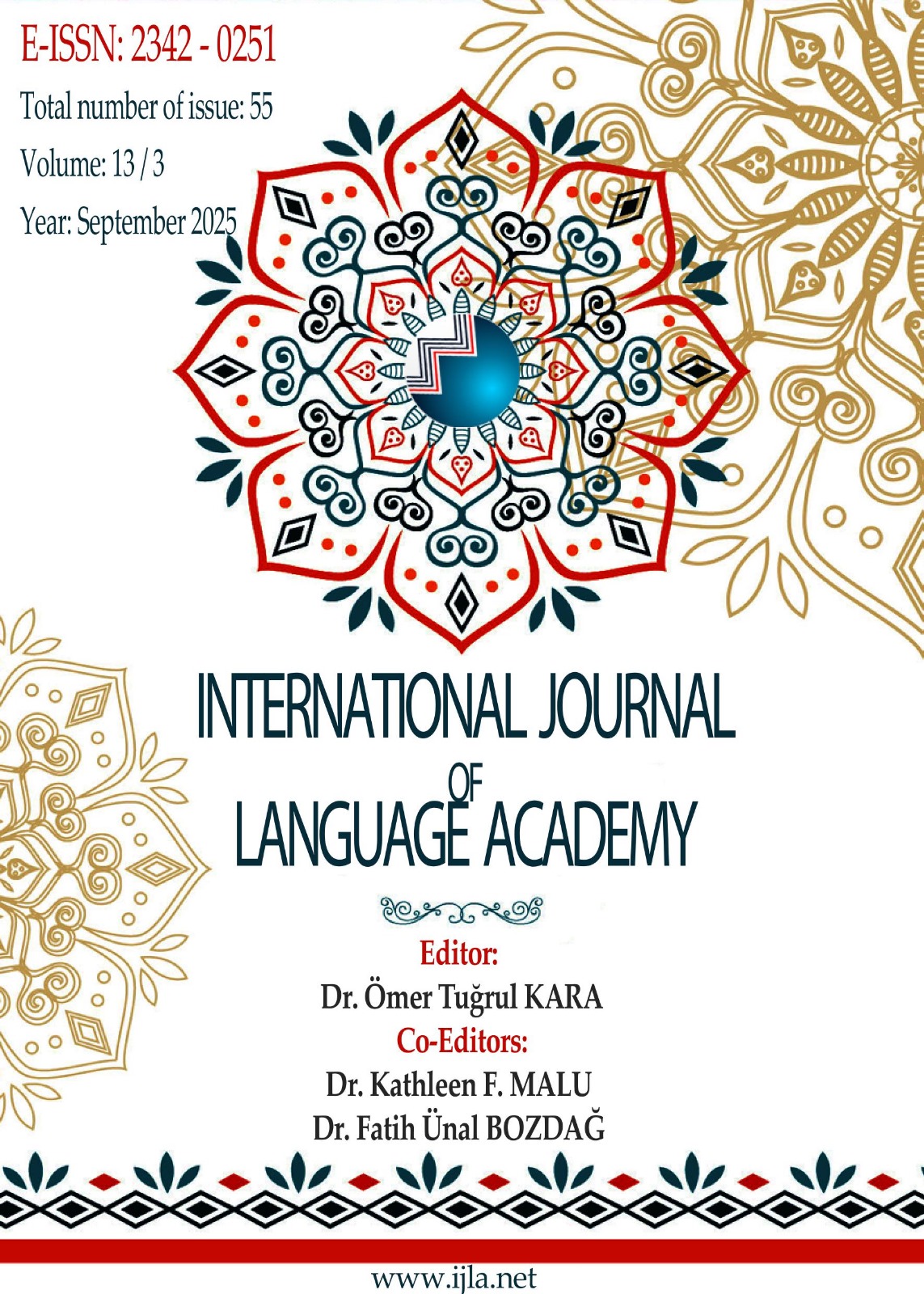SEEKING DYSTOPIA IN GEORGE ORWELL'S ANIMAL FARM AND YAŞAR KEMAL'S SULTAN OF THE ELEPHANTS AND THE RED-BEARDED LAME ANT
Author :
Abstract
Keywords
Abstract
This article examines George Orwell’s Animal Farm and Yaşar Kemal’s Sultan of the Elephants and the Red-Bearded Lame Ant, analyzing how these texts show the functioning of hegemonic regimes, the impact of ideological apparatuses on society, and the position of individuals in such systems. While Orwell displays a critique of the Stalinist regime in his allegory, Kemal presents a more universal narration on hegemony and exploitation. Both allegories demonstrate how individuals are subjected to control in dystopian and hegemonic structures, not only through physical coercion but also by use of psychological domination, highlighting how mechanisms of manipulation, propaganda, and ideological indoctrination systematically shape, direct, and constrain the cognitive and social agency of subjects. Employing Gramsci’s theory of hegemony, the article demonstrates how hegemony is established through a combination of coercion and consent in a dystopian structure. Gramsci’s theory of hegemony provides an important framework for understanding how mechanisms of power structures operate in dystopia. By illustrating the conflict between civil society and the state, hegemony reveals the impact on both individuals and social structures, demonstrating the fundamental dynamics of the ruling class. In accordance with this thesis, the two allegories reveal the ways in which political discourse and ideology sustain and reproduce the hegemonic order imposed by the oppressive regimes. The study demonstrates how Western and non-Western allegories articulate critiques of power, hegemony, and exploitation. In this context, the article aims to present how dystopian mechanisms appear and function in the allegories of Orwell and Kemal.





